


NFL Legend OJ Simpson Loses His Battle With Cancer
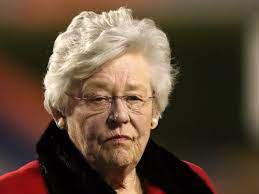
Alabama Governor Signs Bill Barring Diversity, Equity and Inclusion Programs

Miami Is Breaking Up With Spring Break-As Some Call This a Racist Move To Deter Black People From The Area

What We Know: Fani Willis' Removal Fight
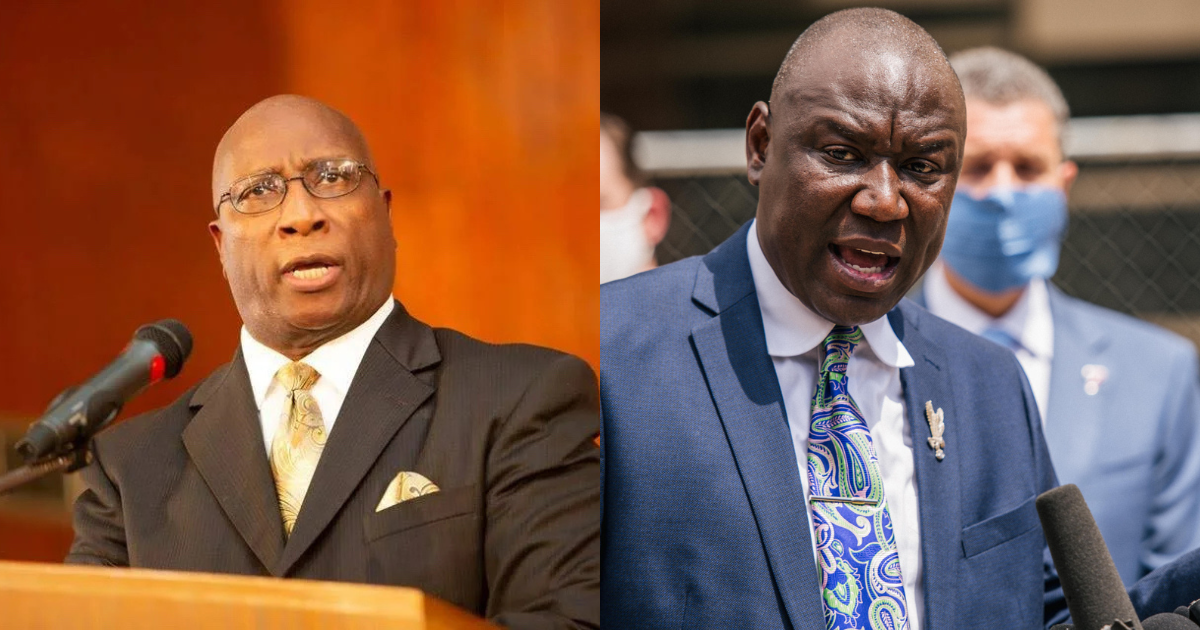
Over 200 Bodies Were Found Buried Behind A Mississippi Jail. Community Raises Call For An Investigation
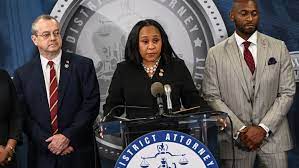
Fulton County District Attorney Fani Willis Alleged Romantic Involvement With Trump Prosecutor May Result In Dropped Charges, Disbarment and Jail Time
Fulton County District Attorney Fani Willis hired an alleged romantic partner to lead the Atlanta prosecution of former President Donald Trump and 18 others on election conspiracy charges and improperly financially benefited from that relationship, tainting the entire case, according to a new court filing by one of Trump’s co-defendants.
The 127-page motion was filed Monday by a lawyer for longtime Trump associate Michael Roman, who was indicted for his alleged role as a campaign official in trying to help Trump overturn the Georgia election in 2020 after President Joe Biden’s victory in the state.
The motion seeks to dismiss the charges against Roman on the grounds that they are “fatally defective," the filing by Roman's attorney, Ashleigh Merchant, argues. It also seeks to disqualify Willis, the entire Fulton County District Attorney’s Office and the special prosecutor, Nathan Wade, because the two “have been engaged in an improper, clandestine personal relationship during the pendency of this case.”
According to county records cited by the Journal-Constitution, Wade has been paid nearly $654,000 in legal fees since January 2022. It said that as DA, Willis “authorizes his compensation.”
The filing alleges that Wade, a prominent Georgia private attorney and former municipal court judge, paid for vacations with Willis to the Napa Valley in California, to Florida, and on a Caribbean cruise using funds his law firm received from Willis' office.
The filing alleges that it is basing its claims on "sources close to both the special prosecutor and the district attorney," and that the personal relationship between the district attorney and the special prosecutor "began before this prosecution was initiated and before the district attorney appointed the special prosecutor."
Based on the timing of the payments, and the alleged trips together, "the district attorney and the special prosecutor have violated laws regulating the use of public monies, suffer from irreparable conflicts of interest, and have violated their oaths of office under the Georgia Rules of Professional Conduct and should be disqualified from prosecuting this matter," the motion states.
For instance, Wade purchased hotel rooms for personal trips with funds from the same account his firm used to receive payments under his contract with Willis, the motion alleged.
It also alleged that Willis and Wade "have been seen in private together in and about the Atlanta area and believed to have co-habited in some form or fashion at a location owned by neither of them."
And the motion claimed that the payments Wade received from Fulton County and subsequent travel allegedly paid for by those funds could amount to “honest services fraud” based on federal laws that aim to prevent elected officials from receiving kickbacks from people they have hired.

Bishop William Barber Receives Apology From AMC After Being Removed From The Color Purple By Police
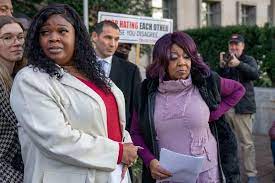
Jury Awards $148 Million in Damages to Georgia Election Workers Over Rudy Giuliani’s 2020 Vote Lies

The Racist History of The Runoff Election in Georgia
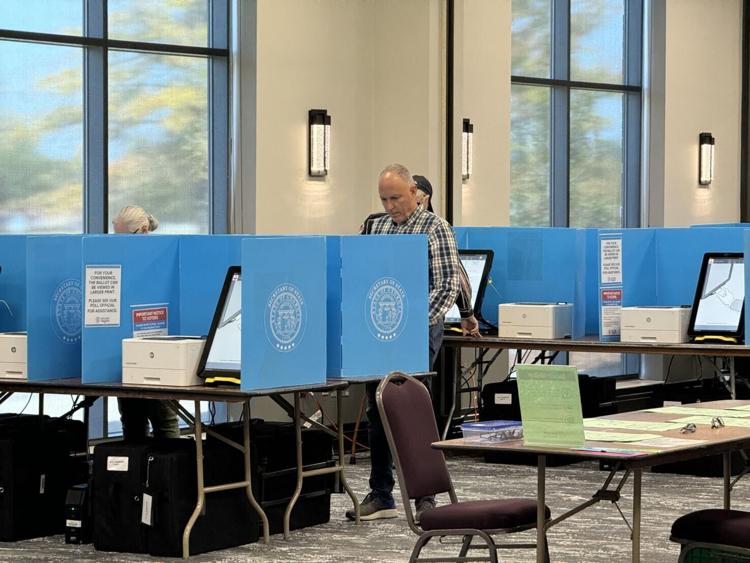
Lawsuit Challenging Electronic Voting Devices In Georgia Heads To Trial In January
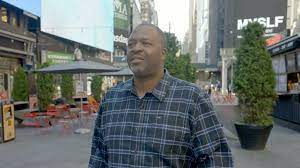
The Black Dock Worker Assaulted In The Massive Brawl in Montgomery, Alabama, Has Been Charged.
The Black dock worker seen on video of the massive brawl in Montgomery, Alabama, that took over social media during the summer has been charged, according to reports.

Carlee Russell Found Guilty In Faking Her Own Kidnapping
An Alabama judge has found Carlee Russell guilty of the elaborate hoax and sentenced her to one year in jail and $18,000 in restitution. Russel pleaded not guilty and appeared emotionless as she strolled into the Alabama courthouse on 10/11/23.
Russell’s attorney, Emory Anthony, told CNN that "his client asked for a verdict so they could appeal the case to a circuit court in an effort to avoid jail time".
Anthony said Russell does not object to paying restitution, saying, “I think anything is fair when it comes to restitution with the expenses that were done. So we have to say that is fair. Anytime you assert restitution it has to be proven. The amount $17-thousand and some, hours spent, I would think that would be fair.”

US appeals court blocks Fearless Fund grant program for Black women
A federal appeals court on Saturday blocked a venture capital fund from moving forward with a program that awards funding to businesses run by Black women in a case by the anti-affirmative action activist behind the successful U.S. Supreme Court challenge to race-conscious college admissions policies.
The Atlanta-based 11th U.S. Circuit Court of Appeals on a 2-1 vote granted a request by Edward Blum's American Alliance for Equal Rights to temporarily block Fearless Fund from considering applications for grants only from businesses led by Black women.
Blum's group asked the court to do so while it appealed a judge's Tuesday ruling denying it a preliminary injunction blocking Fearless Fund from moving forward with its "racially exclusive program." Grant applications were due Saturday.
The judges in the majority, U.S. Circuit Judges Robert Luck and Andrew Brasher, agreed with Blum's group that Fearless Fund's "racially exclusionary" grant program likely violated Section 1981 of the 1866 Civil Rights Act, a Civil War-era law that bars racial bias in contracting.
U.S. District Judge Thomas Thrash earlier this week concluded that under the U.S. Constitution's First Amendment's free speech protections, Fearless Fund had a right to express its belief in the importance of Black women to the economy through charity.
But the appeals court's majority, comprised of two appointees of Republican former President Donald Trump, said the First Amendment "does not give the defendants the right to exclude persons from a contractual regime based on race."
Blum in a statement said his group was "gratified that the 11th Circuit has recognized the likelihood that the Fearless Strivers Grant Contest is illegal." Defense lawyers said they planned to seek further appellate review.
"We remain committed to defending our clients’ meaningful work," said Jason Schwartz, a lawyer for Fearless Fund.
Fearless Fund describes itself as "built by women of color for women of color."
The lawsuit is one of three that Blum's Texas-based group has filed since August challenging grant and fellowship programs designed by the venture capital fund and two law firms to help give Black, Hispanic and other underrepresented minority groups greater career opportunities.
A different group founded by Blum, who is white, was behind the litigation that led to the June decision, powered by the Supreme Court's 6-3 conservative majority, declaring unlawful race-conscious student admissions policies used by Harvard University and the University of North Carolina.
According to the Fearless Fund, businesses owned by Black women in 2022 received less than 1% of the $288 billion that venture capital firms deployed.
The fund aims to address that disparity, and counts JPMorgan Chase (JPM.N), Bank of America (BAC.N) and MasterCard (MA.N) as investors. It has invested nearly $27 million in 40 businesses led by minority women since its founding in 2019.
It also provides grants, and Blum's lawsuit took aim at its Fearless Strivers Grant Contest, which awards Black women who own small businesses $20,000 in grants and other resources to grow their businesses.
The fund argued Blum was trying to "turn a seminal civil rights statute on its head" by suing it under a Civil War-era law enacted to protect formerly enslaved Black people from racial bias.
U.S. Circuit Judge Charles Wilson, an appointee of Democratic former President Bill Clinton, in a dissenting opinion on Saturday called it a "perversion" of Congress' intent to use that law against a remedial program like Fearless Fund's.

Georgia Governor Brian Kemp Confirms He Won't Approve a Commission To Oust DA Fani Willis
Brian Kemp has openly refused to support a support a special probe into Fulton County District Attorney Fani Willis for her election subversion investigation that resulted in a criminal indictment against former President Donald Trump and several of his allies and supporters.
During during a press conference on Thursday August 31, 2023 , Kemp took the time to “speak to some history that’s trying to repeat itself over the last few days here in Georgia” as he put it.
The governor highlighted how he repeatedly rejected calls for a special session to gather the state’s lawmakers and overturn Georgia’s 2020 election results “because such an action would have been unconstitutional.”
The slaughter of everyday Americans going about their daily lives is the latest in a series of shootings targeting Black people – including at a supermarket in Buffalo, New York, last year and a historically Black church in Charleston, South Carolina, in 2015.

Jacksonville, Florida Shooting Is Just Another Example of What's Wrong In Florida
Three innocent families are once again tasked with the burden of burying their loved ones lost at the hands of a crazed white supremacist. The racist rampage took place on Saturday August 26th at a Jacksonville area Dollar General.
21 year old Ryan Christopher Palmeter cowardly took the lives of Angela Michelle Carr, 52, Anolt Joseph “AJ” Laguerre Jr., 19, and Jerrald Gallion, 29 and ultimately himself. The killer was armed with an AR-15-style rifle and a handgun – which were both legally purchased, the sheriff said.
The Justice Department is now investigating the shooting as a hate crime and an act of racially motivated violent extremism, Attorney General Merrick Garland said Sunday.
The slaughter of everyday Americans going about their daily lives is the latest in a series of shootings targeting Black people – including at a supermarket in Buffalo, New York, last year and a historically Black church in Charleston, South Carolina, in 2015.

Montgomery Brawl Is Just Another Example Of White Privilege Gone Wrong
Three white men have been charged in connection with the now infamous "Montgomery Brawl" that took place in the capital city of Alabama on August 5th. While many are weighing in on this issue across social media and the world at large, we at Black Market have decided to deliver our two cents on the matter.
First and foremost, white folks really be out on these streets doing the absolute most. The Black co-captain was simply doing his job and asked the rowdy group to move their boat. Instead of complying they felt the need to attack the co-captain... Big Mistake!
When the co-captain threw his hat it was like a unofficial Black folk's "Bat Signal". Folks ran and even swam to the defense of that brother. It was truly a moment in history to see our people unite to whoop those crackers asses.
And while we would never condone, nor advocate violence on anyone, what we witnessed on that dock indicates that Black people are simply TIRED!
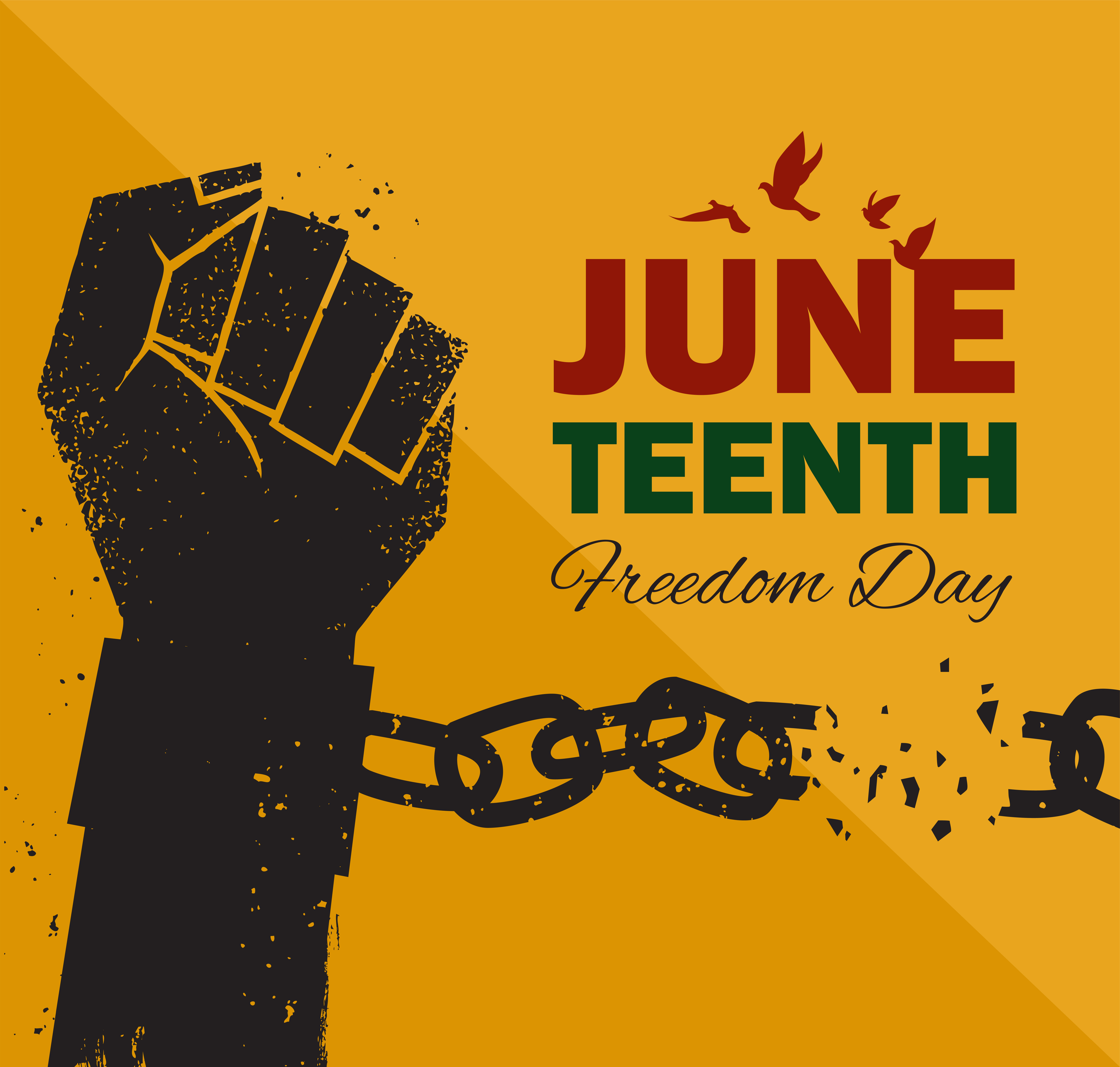
The Meaning of Juneteenth
Juneteenth is a federal holiday in the United States commemorating the emancipation of enslaved African Americans. Deriving its name from combining June and nineteenth, it is celebrated on the anniversary of the order, issued by Major General Gordon Granger on June 19, 1865, proclaiming freedom for slaves in Texas.
Read More About Juneteenth HERE.

Black History Month: More Action, Less Celebration
Op-Ed By Kishana L. Holland, Staff Writer
February is the month where Republican lawmakers will tweet out inspirational quotes honoring the contributions of Black civil rights leaders. These empty, often tone-deaf social media "experiments" are a part of their "Look at me, I'm not a racist" tour, yet these same individuals do nothing to dismantle the systems that continue to oppress Black people.
In an effort to white-wash the history of America, 21 states have banned critical race theory or introduced legislation to ensure it will never be taught in the school system.
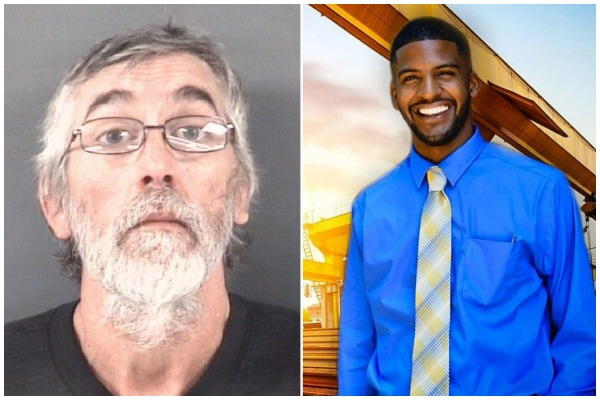
They Don't Learn... Do They?
A 32-year-old Black veteran and father of three was shot and killed in Fayetteville, North Carolina, this week after a road rage confrontation with a white father and son riding in a pickup truck ended with the motorcyclist being shot in his chest.
Stephen Addison was shot by 51-year-old Roger Dale Nobles Sr. as the biker argued with Roger Dale Nobles Jr. on Monday, Jan. 3. Police state Nobles Sr. fired at Addison from the driver’s seat on the inside of his 1992 Chevrolet pickup after his son got out of the vehicle at a stoplight to confront Addison.
A bystander shot a video of the confrontation and sent it to local station WRAL. Shot from a distance, the footage only shows Noble Jr. standing outside of the passenger side of the truck and then walking toward Addison. The two appear to be arguing when the shotgun blast comes from the pickup. The video does not record the argument.
After Addison falls to the ground from the blast, Nobles Jr. walks away without assisting him. Police and Cumberland County sheriff’s deputies later located Nobles Sr. at his home. After presenting him with a warrant, he and his son were apprehended. Nobles Sr. admitted to the shooting Addison, authorities say.
One neighbor said, “They put them in handcuffs, and then it went from there. They started searching the truck.”
The older Nobles was arrested and charged with first-degree murder, but the son was released without any charges. The outlet reports that Cumberland County District Attorney Billy West is looking at the evidence and is open to a possible hate crime consideration.
After reviewing the six-minute exchange between Addison and Nobles Jr. and analyzing the son’s body language, two security analysts offered to the station that Nobles may have known that his dad planned to use the weapon.
Anthony Waddy of SAV Consulting said, “Where he’s actually standing in reference to, what we call in the military, a fatal funnel. He’s clearly out of harm’s way.”
The analyst says it appears that Nobles Jr. created a clear path for the shot to strike Addison, noting that even after the shot the son did not flinch. Moreover, after the man fell to the ground, Waddy asserts the son did not turn as if surprised that his father fired his gun at the man.
Addison’s friends and family members are still trying to process the loss of their loved one amid the outpouring of condolences from the community.
Justina Hemphill, the wife of the former Fort Bragg soldier, while reflecting on Addison’s life to WRAL said that he was a “great guy” and his personality “lit up every room he went into.”

They Sued To Integrate Georgia State University And Won... Yet They Still Could Not Enroll.
In 1956, Myra Elliott wanted to return to college. Valedictorian of her high school class in Keysville, Ga., she had attended Spelman but couldn't afford the tuition and left to work at Atlanta Life Insurance Company on Auburn Avenue. She thought the Georgia State College of Business -- soon to be renamed Georgia State University -- would be ideal; it was around the corner from her downtown office and, as a public institution, less expensive than Spelman.
There was one problem. The state of Georgia had ignored the federal mandate to integrate its schools, and denied African American students admission to its all-white public colleges and universities through bogus requirements to obtain endorsement letters from alumni or certification from a judge. Elliott was among the rejected students.
Asked to become a plaintiff in a lawsuit to integrate the colleges, Elliott agreed, explaining in her Riverdale home earlier today that she didn't realize the attention the case would attract. Or the political chicanery and character assassination that the state would employ.
"I was just young, naïve and stupid," said the 87-year-old Elliott. She was also heroic, as were her two co-plaintiffs Barbara Pace Hunt and Iris Mae Welch, both of whom have since died.
While few people recognize their names or their role in history, that may change with the publication of "Ground Crew: The Fight to End Segregation at Georgia State."
"I call them the foot soldiers of the civil rights movement," said "Ground Crew" author Maurice C. Daniels, dean emeritus and professor emeritus of the University of Georgia school of social work and founder and director of the Foot Soldier Project for Civil Rights Studies. "It required a lot of courage by all these students. They were willing in essence to put their lives on the line."
His book details the brilliant NAACP strategists and the extraordinary legal team including Constance Baker Motley and Donald Lee Hollowell who won the groundbreaking lawsuit in 1959. U.S. District Court Judge Boyd Sloan ruled Georgia State’s racial discriminatory policies and practices violated the Constitution.
Hunt v. Arnold became the NAACP's first federal court victory against segregated education in Georgia, establishing legal precedents that helped Charlayne Hunter-Gault and Hamilton Holmes integrate the University of Georgia in 1961 and James Meredith integrate Ole Miss in 1962.
Yet, Elliott, Hunt and Welch never attended Georgia State. Because while U.S. District Judge William Bootle two years later in the UGA case forced the university to immediately admit black students, Judge Sloan stopped short of mandating the admission of Elliott, Welch and Hunt when he ordered GSU to integrate.
In the face of Sloan's ruling, the Board of Regents and the Legislature went to shocking lengths to continue to lock out African Americans, including imposing morality standards that could block women who had conceived before marriage and even passing a law denying college admission to anyone over the age of 21, as were all three plaintiffs.
"It was appalling that they should actually pass a law that the speaker pro term said on the floor of the Georgia House was designed to keep blacks out. He did not use the word 'blacks.' It is disheartening to see the things that our state did to sustain that system of segregation," said Daniels.
The rancor around the case led Barbara Pace Hunt to not only flee Georgia, but to decline to ever detail the experience to her three children, said her daughter Crystal Freeman, who now lives in Atlanta.
"She didn’t like to talk about it and always said it was a dark time," said Freeman, the youngest of Hunt's children and born after the trial.
Hunt worked for the Southern Christian Leadership Conference and the Rev. Martin Luther King Jr., and the civil rights leader suggested she apply to GSU, said Freeman. Her mother's role as lead plaintiff and her civil rights background may have exposed her to greater harassment than her co-plaintiffs.
"She had to move her daughters from place to place because the KKK threatened her," said Freeman. When the trial ended, Hunt left Georgia for Texas, where she earned two master's degrees.
Freeman has requested that GSU recognize her mother, Welch and Elliott, even offering to pay for the planting of a tree in their honor. "I have been fighting for this for about 10 years. I was told by GSU that this is a very negative thing and that they are not like this now, that now they graduate the highest number of African American students in the country. But this is history."
Elliott's daughters are only discovering the scope of their mother's contribution to that history. She, too, shared few specifics of the lawsuit with her kids. June Harland recalls her mother announcing a few years ago that a professor was interviewing her for a book, but was shocked when she saw her mother on the cover of "Ground Crew."
"As I read the book now, I am learning all this information and filling in the blanks. My mouth is hanging open," said Harland. "I am very proud of her and excited not just for her, but for the story of how we, as a people, finally were able to get a postsecondary education here in the state of Georgia."
Daniels offered an explanation why the two women may have been reticent. “Although they won an important and groundbreaking case, the fact that Georgia State refused to admit them was disappointing. The inflammatory statements by public officials and personal threats may also explain why they did not discuss their involvement more openly,” he said.
A year after the integration of UGA, two African American women enrolled at GSU, including Annette Lucille Hall, who held an undergraduate degree from Spelman and a master’s from Atlanta University. A teacher in Rockdale County, Hall was 53 but the state had repealed the age limit by that point.
Hall's extended Atlanta family broke other color lines; nephew Ralph Long Jr. helped desegregate Georgia Tech, a benchmark honored in September with the unveiling of statues of Long and three other African-American students. Her niece Carolyn Long Banks became the first African-American woman to serve on the Atlanta city Council.
A few months later, Marybelle Reynolds Warner enrolled, becoming Georgia State’s first full-time African American student. Warner already held degrees from St. Louis University and Washington University but decided to study music education. Three years later, Joseph Howard McClure earned a bachelor’s degree and walked into history as the school’s first black graduate.
As for Myra Elliott, the belated attention to her critical role in these achievements is not something she sought. "I never expected it and that wasn't my reason for being part of the lawsuit. They told me I couldn't go to that school, and I started thinking about all the black children who might want to go. That was my reason."

Georgia Prosecutor Fani Willis Opens Criminal Investigation Into Trump's "Attempts to Influence" The Election
The Fulton County, Georgia, district attorney has opened a criminal investigation into Donald Trump's alleged attempts to influence the outcome of the presidential election in the state, which he lost narrowly to Joe Biden.
The prosecutor, Fani Willis, sent letters Wednesday morning to Georgia Governor Brian Kemp, Lieutenant Governor Geoff Duncan, Secretary of State Brad Raffensperger, and Attorney General Chris Carr, writing that the investigation is a "matter is of high priority."
Sources with Willis' and Raffensperger's offices confirmed that the prosecutor is requesting documents related to a recorded January 2 phone call Mr. Trump made to Raffensperger, among others, although the letters do not explicitly name Mr. Trump or reference the phone call.
During the call, Mr. Trump asked: "What are we going to do here, folks? I only need 11,000 votes. Fellas, I need 11,000 votes. Give me a break."
Willis wrote in her letter that her office "has opened an investigation into attempts to influence the administration of the 2020 Georgia General Election. This investigation includes, but is not limited to, potential violations of Georgia law prohibiting the solicitation of election fraud, the making of false statements to state and local governmental bodies, conspiracy, racketeering, violation of oath of office and any involvement in violence or threats related to the election's administration."
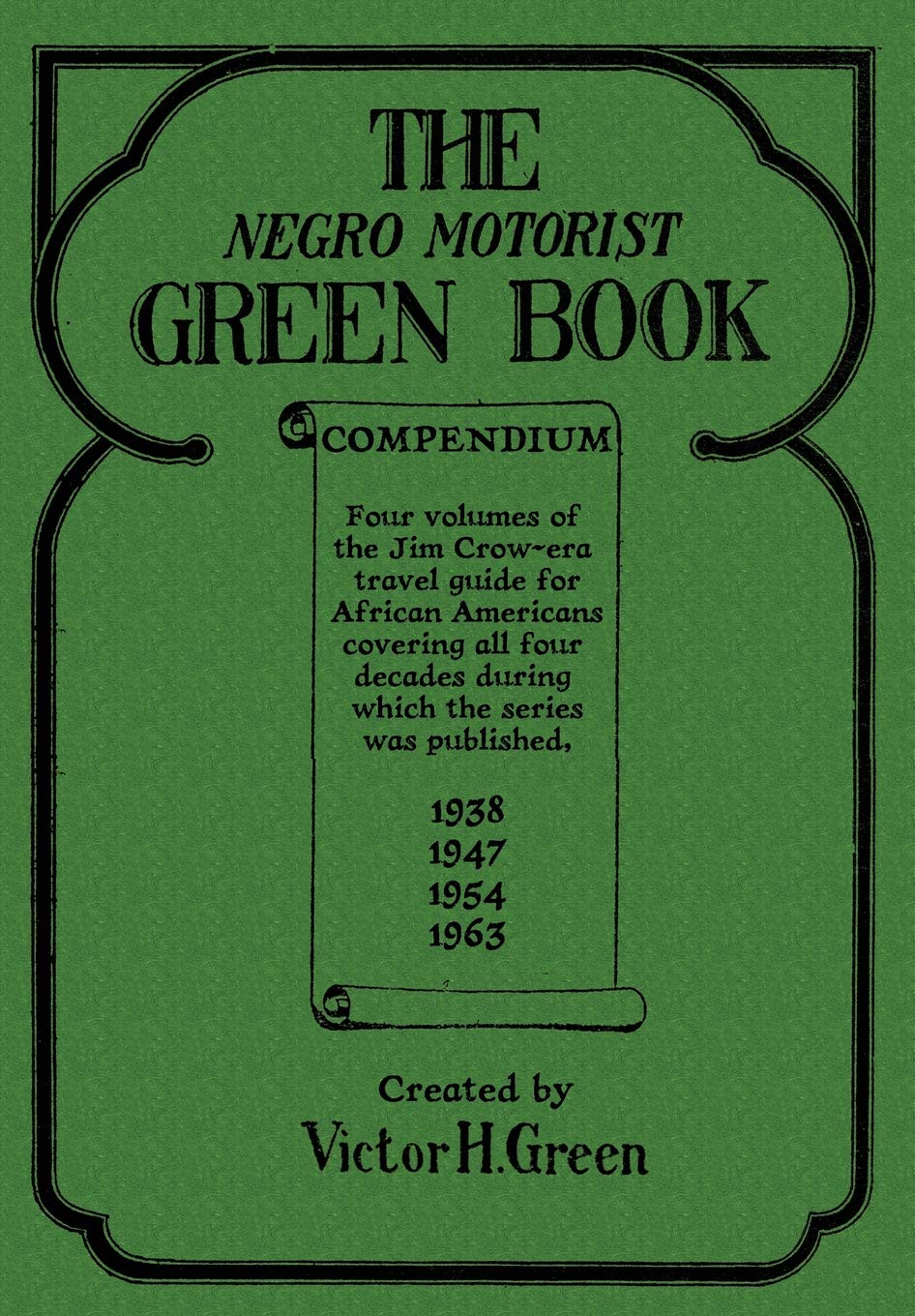
The History of "The Green Book"
“There will be a day sometime in the near future when this guide will not have to be published. That is when we as a race will have equal opportunities and privileges in the United States. It will be a great day for us to suspend this publication for then we can go wherever we please, and without embarrassment.”
That was how the authors of the “Negro Motorist Green Book” ended the introduction to their 1948 edition.
First published in 1936, the Green Book was the brainchild of a Harlem-based postal carrier named Victor Hugo Green. Like most Africans Americans in the mid-20th century, Green had grown weary of the discrimination blacks faced whenever they ventured outside their neighborhoods.
Unlike the romanticized Hollywood film of the same name, The "Green Book" provided a rundown of hotels, guest houses, service stations, drug stores, taverns, barber shops and restaurants that were known to be safe ports of call for African American travelers. The “Green Book” listed establishments in segregationist strongholds such as Alabama and Mississippi, but its reach also extended from Connecticut to California—any place where its readers might face prejudice or danger because of their skin color.
With Jim Crow still looming over much of the country, a motto on the guide’s cover also doubled as a warning: “Carry your Green Book with you—You may need it.”
Victor Hugo Green died in 1960 after more than two decades of publishing his travel guide. His wife Alma took over as editor and continued to release the Green Book in updated editions for a few more years.
In one of its last editions in 1963-64, it included a special “Your Rights, Briefly Speaking” feature that listed state statutes related to discrimination in travel accommodations. “The Negro is only demanding what everyone else wants,” the article stressed, “what is guaranteed all citizens by the Constitution of the United States.”
In 1964, the Civil Rights Act finally banned racial segregation in restaurants, theaters, hotels, parks and other public places. Just two years later, the Green Book quietly ceased publication after nearly 30 years in print.

Hip Hop Museum Set to Open in the Bronx in 2023
After a couple years of promoting the concept, construction is finally starting on a museum showcasing the history of hip hop in the borough where it was started.
Crews are scheduled to arrive this week on exterior street and 149th street to start the Bronx point development -- a housing and entertainment complex. The museum will be inside of that development honoring the music and other parts of hip hop including DJing, break dancing and graffiti art. The executive director of the Universal Hip Hop museum says the construction was delayed last year because of the pandemic and budget issues.
An official groundbreaking ceremony will happen later this year.
Hip Hop's birth is said have happened at a Bronx party inside a building on Sedgwick Avenue in 1973. The museum's organizers hope to open in 2023 for the 50th anniversary of the genre.
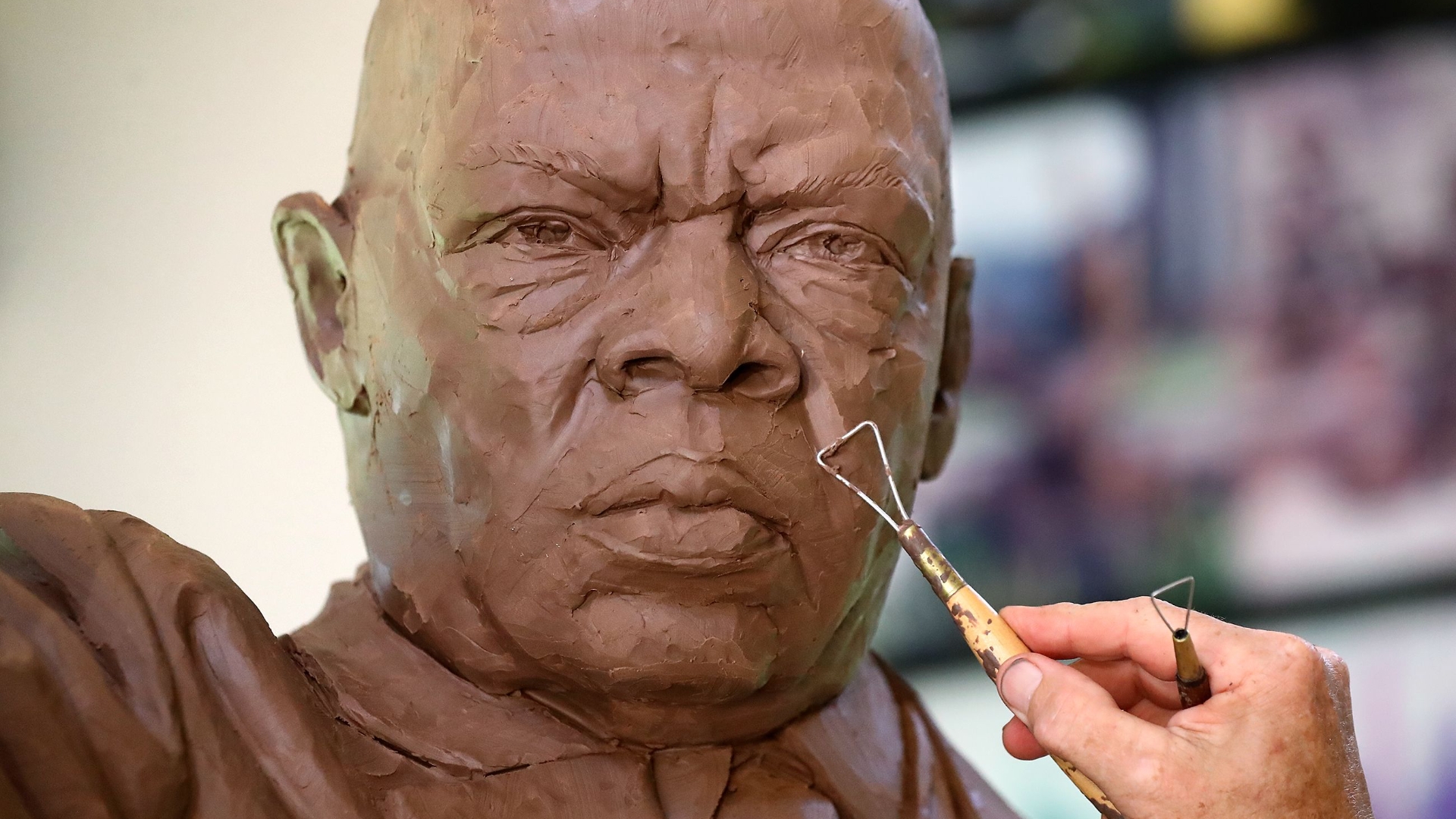
John Lewis Memorial to Replace Confederate Monument in Georgia
A DeKalb County, Ga., Confederate monument will be replaced with a monument honoring the late civil rights leader Rep. John Lewis (D-Ga.).
The monument on the grounds of the Historic DeKalb County Courthouse was removed last January, a period where numerous other statues were also removed by both local governments and protesters. County commissioners approved the resolution to install the Lewis memorial January 26, 2021.
Several residents requested such a memorial after Lewis’s death on July 17, although it remains unclear what the proposed monument will look like.
Representatives of the Beacon Hill Black Alliance for Human Rights suggested the memorial depict Lewis in his youth, when he was a confidant of Martin Luther King Jr. and was severely beaten by Alabama State Troopers on Selma’s Edmund Pettus Bridge.
“It is our hope that because our youth played such an essential role in the removal of the [Confederate] monument, that a statue of the young John Lewis during his [younger] years will be erected in the Decatur square,” the group said at a July meeting, according to the publication.
“This will be a reminder of how many young people have been a catalyst for change in the world. Where a monument once stood to intimidate and disenfranchise Black voters, soon will stand a statue of an American hero who gave his life to building the movement that ensures Black people have the right to vote,” they added.
Separately, a proposal in the state legislature that would add a statue of Lewis to the U.S. Capitol’s Statuary Hall has secured bipartisan support. It would replace Confederate vice president Alexander Stephens, who made the infamous “Cornerstone Speech” calling slavery foundational to the Confederacy.

"What You Don't Know Can Kill You"
Black people are least likely to be aware the medical bills related to Covid-19 care could be covered under The Cares Act.
Black people who contract Covid-19 are likely to die twice the rate than white people. With a record number of 350,000 deaths (and counting) in the United States. With Black people seeing the worst of it.
The reasons are complex: people of color are more likely to be poor, work in low paying industries that expose them to the virus, live in crowded spaces, and have chronic health conditions. Black people disproportionately live in lower-income neighborhoods, which typically have more tobacco shops (which drives up smoking and therefore lung problems) and less access to fresh food (which drives up obesity, contributing to the high rates of diabetes and heart disease) - Thus some of the reasons for the chronic health conditions.
Couple that with the fact that many of these "essential workers" in these poorly paid industries forgo seeking medical attention for fear of termination. When you're Black in America living below the poverty line, health insurance may not be a priority.
The Trump administration’s coronavirus treatment reimbursement program for uninsured COVID-19 patients was announced in early April and has now been in place for about five months. This program uses money from the Coronavirus Aid, Relief, and Economic Security (CARES) Act’s $175 billion Provider Relief Fund to reimburse providers for treating uninsured patients with COVID-19.
Unbeknownst to many Americans, most major health systems participate in a program that covers hospital bills for uninsured COVID-19 patients; however, many of them are not telling their patients upfront.
According to Jennifer Tolbert of the Kaiser Family Foundation, who studies uninsured patients, there is no requirement for hospitals to tell uninsured COVID-19 patients upfront that the federal government would pay the bill in full. Ms. Tolbert also said that even physicians don't always know how the program works or that it exists. She says these are shortcomings of the program.
Sadly, these "shortcomings" could result in a death sentence for Black Americans.
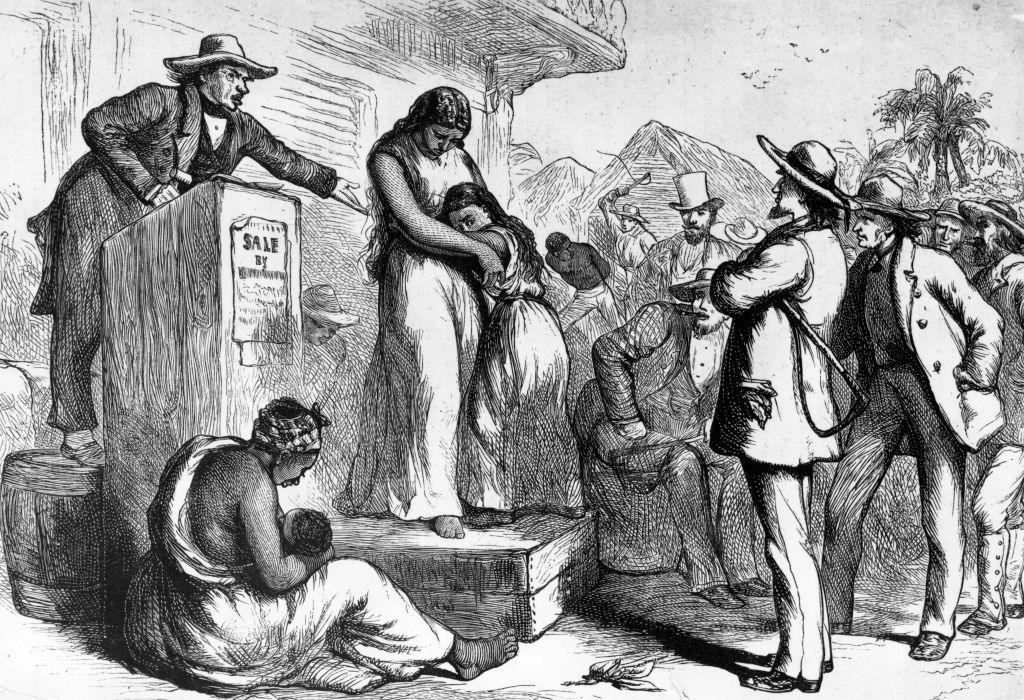
"Why The Slaves Dreaded New Year's Day" : The Grim History of January 1
Americans are likely to think of New Year’s Eve and New Year’s Day as a time to celebrate the fresh start that a new year represents, but there is also a troubling side to the holiday’s history. In the years before the Civil War, the first day of the new year was often a heartbreaking one for enslaved people in the United States.
In the African-American community, New Year’s Day used to be widely known as “Hiring Day” — or “Heartbreak Day,” as the African-American abolitionist journalist William Cooper Nell described it — because enslaved people spent New Year’s Eve waiting, wondering if their owners were going to rent them out to someone else, thus potentially splitting up their families. The renting out of slave labor was a relatively common practice in the antebellum South, and a profitable practice for white slave owners and hirers.
"Hiring Day" was part of the larger economic cycle in which most debts were collected and settled on New Year’s Day,” says Alexis McCrossen, an expert on the history of New Year’s Eve and New Year’s Day and a professor of history at Southern Methodist University, who writes about Hiring Day in her forthcoming book Time’s Touchstone: The New Year in American Life.
Some enslaved people were put up for auction that day, or held under contracts that started in January. (These transactions also took place all year long and contracts could last for different amounts of time.) These deals were conducted privately among families, friends and business contacts, and slaves were handed over in town squares, on courthouse steps and sometimes simply on the side of the road, according to Divided Mastery: Slave Hiring in the American South by Jonathan D. Martin.
Accounts of the cruelty of Hiring Day come from records left by those who secured their freedom, who described spending the day before January 1 hoping and praying that their hirers would be humane and that their families could stay together.
“Of all days in the year, the slaves dread New Year’s Day the worst of any,” a slave named Lewis Clarke said in an 1842 account.
“On New Year’s Day, we went to the auctioneer’s block, to be hired to the highest bidder for one year,” Israel Campbell wrote in a memoir published in 1861 in Philadelphia, in which he describes being hired out three times.
“That’s where that sayin’ comes from that what you do on New Year’s Day you’ll be doin’ all the rest of the year,” a former slave known as Sister Harrison said in an interview in 1937.
Harriet Jacobs wrote a particularly detailed account in “The Slaves’ New Year’s Day” chapter of her 1861 autobiography Incidents in the Life of a Slave Girl. “Hiring-day at the south takes place on the 1st of January. On the 2[n]d, the slaves are expected to go to their new masters,” she wrote. She observed slave owners and farmers renting out their human chattel for extra income during the period between the cotton and corn harvests and the next planting season. From Christmas to New Year’s Eve, many families would “wait anxiously” to find out whether they would be rented out, and to whom. On New Year’s Day, “At the appointed hour the grounds are thronged with men, women, and children, waiting, like criminals to hear their doom pronounced,” Jacobs wrote.
On one of these fateful days Jacobs saw “a mother lead seven children to the auction-block. She knew that some of them would be taken from her; but they took all.” The slave trader who took the children wouldn’t tell her where he was taking them because it depended on where he could get the “highest price.” Jacobs said she would never forget the mother crying out, “Gone! All gone! Why don’t God kill me?”
Enslaved people who attempted to resist going to their new masters were whipped and thrown in jail until they relented and promised not to run away during the new arrangement. Older slaves were also particularly vulnerable, as Jacobs describes one owner trying to hire out a frail roughly 70-year-old woman because he was moving away.
But the history of New Year’s Day and American slavery is not all horror. The holiday was also associated with freedom.
The federal ban on the transatlantic slave trade went into effect on New Year’s Day in 1808, and African-American communities did celebrate, but the festivities were short-lived.
“Different slave-trade abolition commemorations took place between 1808 and 1831, but they died out because the domestic slave trade was so vigorous,” says McCrossen. The risk of violence was also too great. For example, on New Year’s Eve in 1827, in New York City, a white mob attacked African-American congregants and vandalized their church.
The holiday became more associated with freedom than slavery when Abraham Lincoln signed the Emancipation Proclamation, freeing slaves in Confederate states on New Year’s Day in 1863. Slaves went to church to pray and sing on Dec. 31, 1862, and that’s why there are still New Year’s Eve prayer services at African-American churches nationwide. At such “Watch Night” services, congregants continue to pray for more widespread racial equality more than 150 years later.
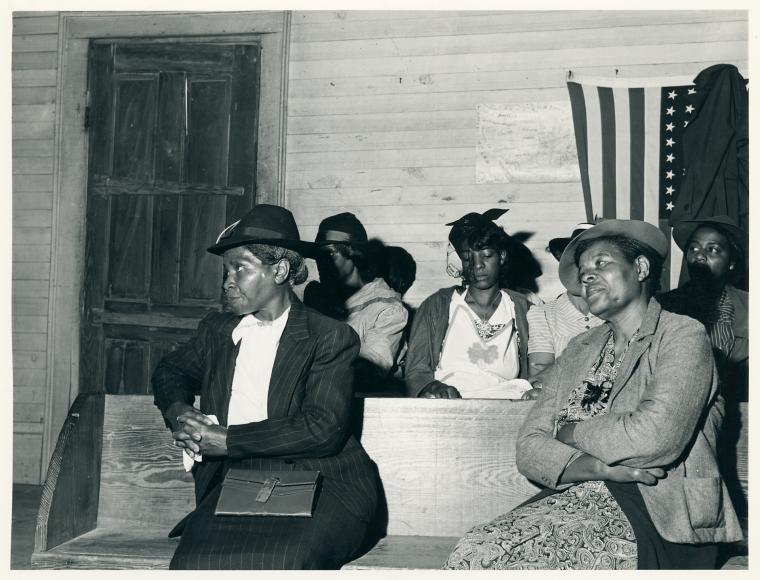
The History Of "Watch Night" Service In The Black Church
“Watch Night Service” in the Black Church in America symbolizes the historical fact, that on the night of Dec. 31, 1862 during the Civil War, free and freed blacks living in the Union States gathered at churches and/or other safe spaces, while thousands of their enslaved black sisters and brothers stood, knelt and prayed on plantations and other slave holding sites in America — waiting for President Abraham Lincoln to sign the Emancipation Proclamation into law. The Emancipation Proclamation legally recognized that the Civil War was fought for slavery.
More than one hundred and fifty years later, African American Christians continue the faith tradition of their enslaved ancestors and gather at a designated meeting space (usually the church)on December 31st to celebrate. It is a tradition in the Black Church in America that five minutes before midnight, men, women and children will kneel, hold hands and pray to God from the present year into the New Year.
